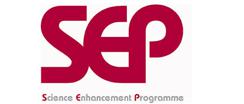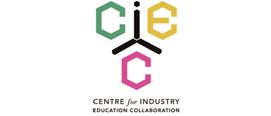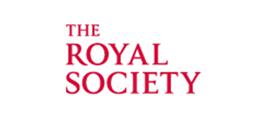Recycling and limited resources
There is good scope within this topic for collaborating with other departments, bringing in concepts of citizenship, the circular economy and product design. The resources in this list include quick starter activities and ideas for extended projects and cross-curricular planning which look at Earth as a source of limited resources and the efficacy of recycling.
Visit the secondary science webpage to access all lists: www.nationalstemcentre.org.uk/secondaryscience
Whilst this list provides a source of information and ideas for experimental work, it is important to note that recommendations can date very quickly. Do NOT follow suggestions which conflict with current advice from CLEAPSS, SSERC or recent safety guides. eLibrary users are responsible for ensuring that any activity, including practical work, which they carry out is consistent with current regulations related to health and safety and that they carry an appropriate risk assessment. Further information is provided in our Health and Safety guidance.
- ALL
- Teacher guidance
- Textbook
- Video
- Experiment
- Activity sheet
- External link
Teacher guidance
One Planet Packaging
An entire scheme of work based around designing, making and testing sustainable packaging. This would make a great cross curricular project with the design and technology department. The resource contains lesson plans, technician notes and student worksheets.
Recycling and Sustainability
This booklet provides an overview of waste management, with particular focus on the different processes used in the recovery of materials from waste and on the end use of recycled materials. It also provides a practical introduction to the physics behind the processes used to separate waste materials, with activities, presentations and teachers notes.
Aluminium: Cradle to Grave
This resource includes lesson plans and resources to teach students about the importance of recycling, through aluminium. It allows students to analyse data as real scientists would, whilst learning about metals and their properties.
Textbook
Recycling Cities
A detailed resource with background information and suggested activities about different kinds of polymers and how we can recycle them. The booklet is slightly out of date so some of the technology has changed but it is a good resource to use as a basis for planning this topic.
Video
How to Save the Planet and Be Cool
A fun video that outlines some of the changes needed to help prevent climate change, focusing on reusing, recycling and reducing waste. Many ways of reducing waste are shown in the form of a photo diary. The issues of food miles and vehicle emissions are also addressed.
Experiment
Plastics: How does washing affect the number of fibres released from a fleece?
This resource provides a set of videos of a practical investigation aimed at supporting working scientifically in the classroom and relating science to real world experiences, presented by Professor Brian Cox and Dame Maggie Aderin-Pocock. In this video, Maggie joins a teacher demonstrating a plastics and sustainability classroom activity, including set-up, demonstration and the experiment being taught with a secondary age science class.
In the second video, we visit Catherine Conway from GoUnpackaged to find out about their work designing solutions to single-use plastics, before visiting Professor Rachael Rothman at the University of Sheffield to find out about her research into sustainable processes and clean energy systems. The second and third videos have a focus on the skills required to work in these areas and offer young people an insight into which subjects or careers they may wish to pursue later in school and beyond. These resources could be a useful tool for careers advisors and form tutors to use during careers discussions. There are accompanying resources available to download.
Activity sheet
Garbage Guru
Students take on the role of a local council looking to reduce their food waste and introduce a new recycling scheme. They will look at differing points of view and present their findings to a public meeting. There is a student sheet and detailed teacher notes.
Waste Away
Some good activities linking to recycling and waste management.
External link
The Great Recovery
Two good videos that look at the issues of recovering materials from items such as mobile phones. This is a really good introduction to how product design has to take into account how the end product may be recycled.







